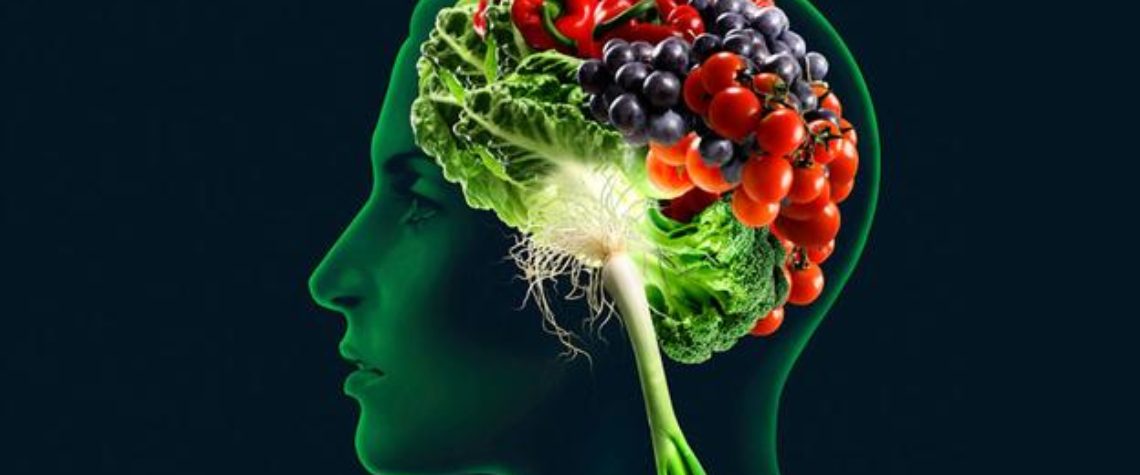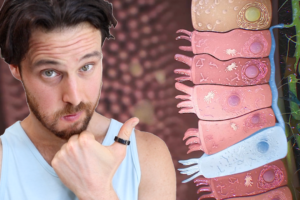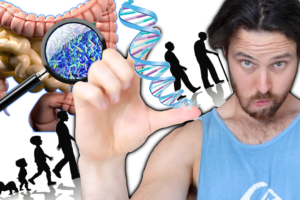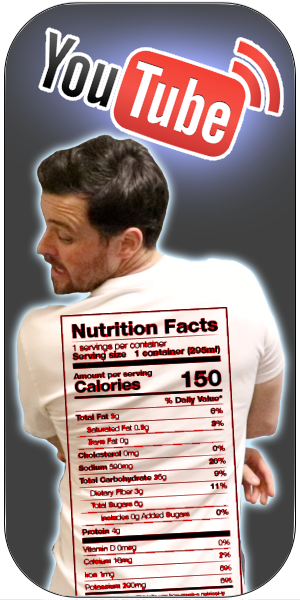Your Gut is Smarter Than You Think
HHP- Interest is also developing in the so-called “brain-gut axis.” It has been theorized that changes in intestinal bacteria may play a role in neuropsychiatric conditions such as anxiety or depression. The intestine has its own separate nervous system, and generates many of the same neurotransmitters (including acetylcholine and serotonin) that the brain generates. These neurotransmitters are very important in promoting gut motility, and too much or too little of them may result in constipation or diarrhea.
A second brain, No WAY!

Thanks Bill, We Know. The gut mind connection is something that we’re just really understanding form a biological standpoint but preliminary studies have shown that several mental disorders are connected to the gut:
Similarly, we believe that the brain and the gut can talk to each other. Therefore, it is possible that anxiety and depression may trigger abdominal pain or other GI symptoms. It is also possible that gastrointestinal conditions such as chronic abdominal pain or constipation might also result in anxiety or depression.
Our gut is populated by trillions of microbes (consuming about 1-3% or our total body mass) that have the ability to effect everything from digestion to mood. So how do we keep these little buggers happy? There is no single answer but a combination of a few:
- Avoid toxins (refined grains, sugar, non-organic dairy & meat, pesticides, non-necessary medications)
- Sleep (7+ hours)
- Eat Fermented food
- Take Probiotics
- Eat Pre-biotics
- Stop Stressing
A hot topic in today’s discussions are centered around probiotics and if taking a daily supplement could make a positive health impact. Lets take a look: everyone already has a composition of bacterial communities established in their gut, whether good or bad, their established. As you know (from my riveting Santa-con piece) your gut is an ongoing war-zone of bacteria vying for real estate, some prosper while others never have the chance to build their white picket communities in gut suburbia. So when you take probiotics you consume trillions of helpful bacteria that can aid overall health but to do so they must first acquire some real estate in ones gut. In order to make room for the good the evil must fall. Your either promoting good bacteria through your actions or promoting poor bacteria.
Purely taking a probiotic pill doesn’t mean those healthy bacteria will be able to siege and breach the evil bacteria kingdom walls.

Its like asking somebody who’s already married out on a date everyday…It could work out but in all likelihood they’ll just be flattered (or weird-ed out) and move on. They’re still gonna be married tomorrow (and the next day), so until something compelling happens to their marital status the same results will ensue.
Many times simply taking a supplement or eating some fermented food will not be enough to alter an individuals gut diversity, the key component here is promoting good communities through what you eat. Prebiotics are foods that fertilize good gut bacteria, some if the best are:
- raw chicory root
- raw Jerusalem artichoke
- raw dandelion greens
- raw garlic
- raw leeks
- raw or cooked onions
- raw jicama
- raw asparagus
- under-ripe bananas
As important as it is to incorporate Pre & Pro -biotics into your daily routine its equally important to decrease your intake of other foods, (you know whats coming) the junk: added sugar, processed foods, and excess animal fats. More studies are needed before we have rock solid evidence on the ideal diet. One thing we do know is good gut bacteria love fiber. Fiber only comes from plant, so eat more of it.
A healthy lifestyle change is on the menu, will you order it?







